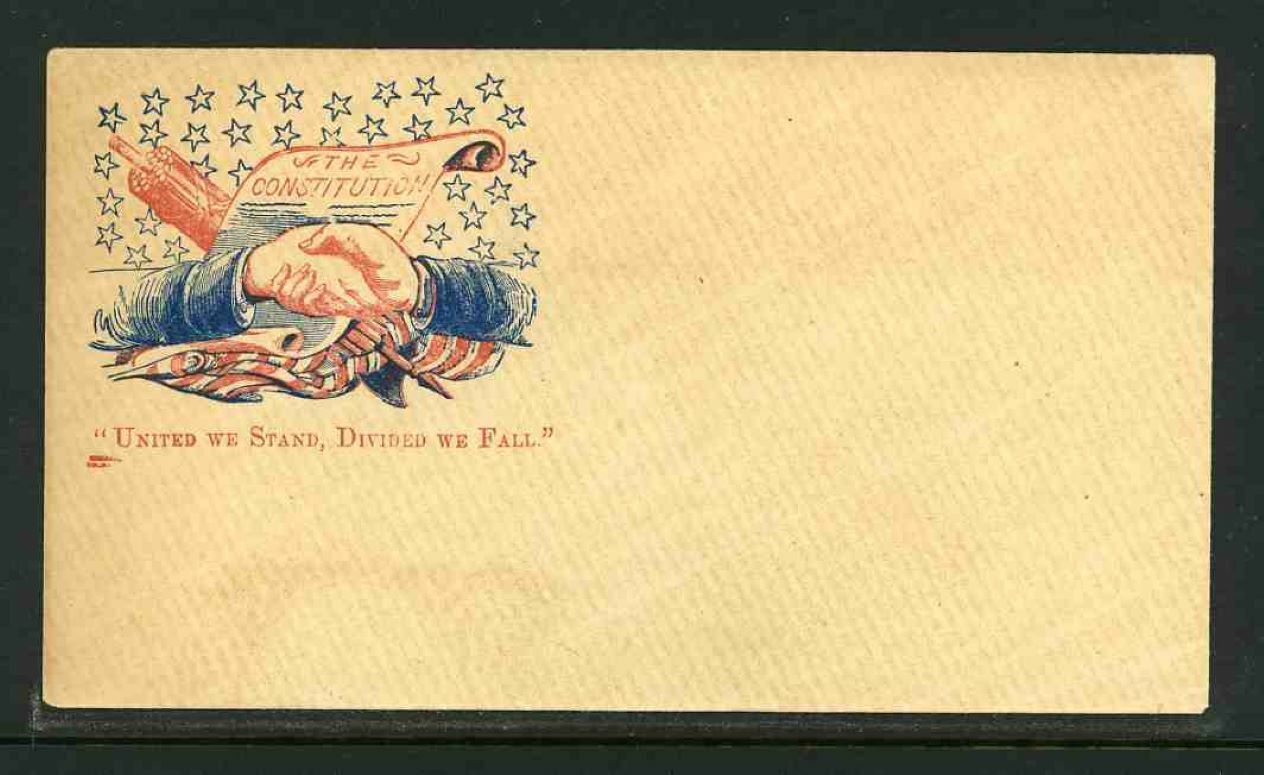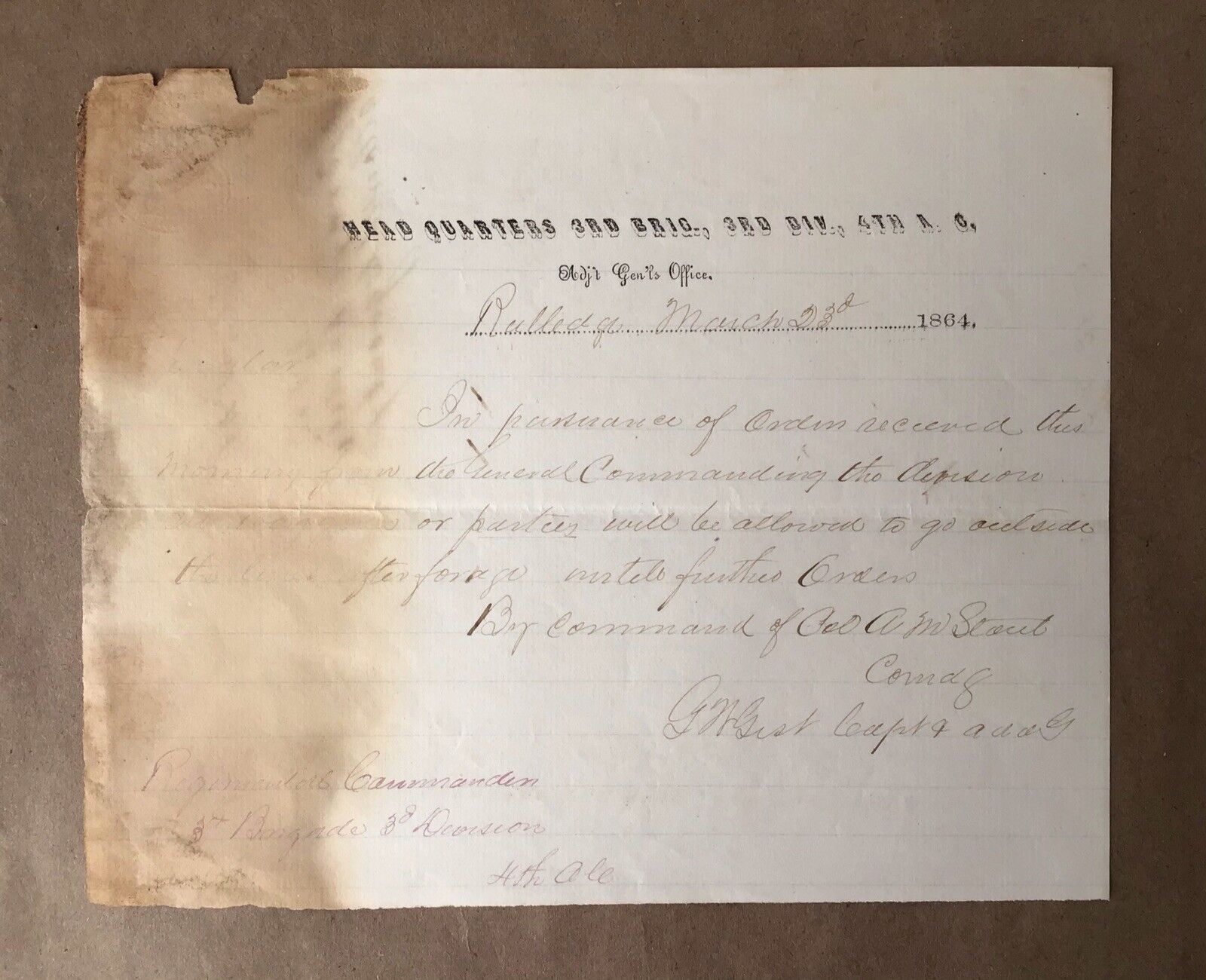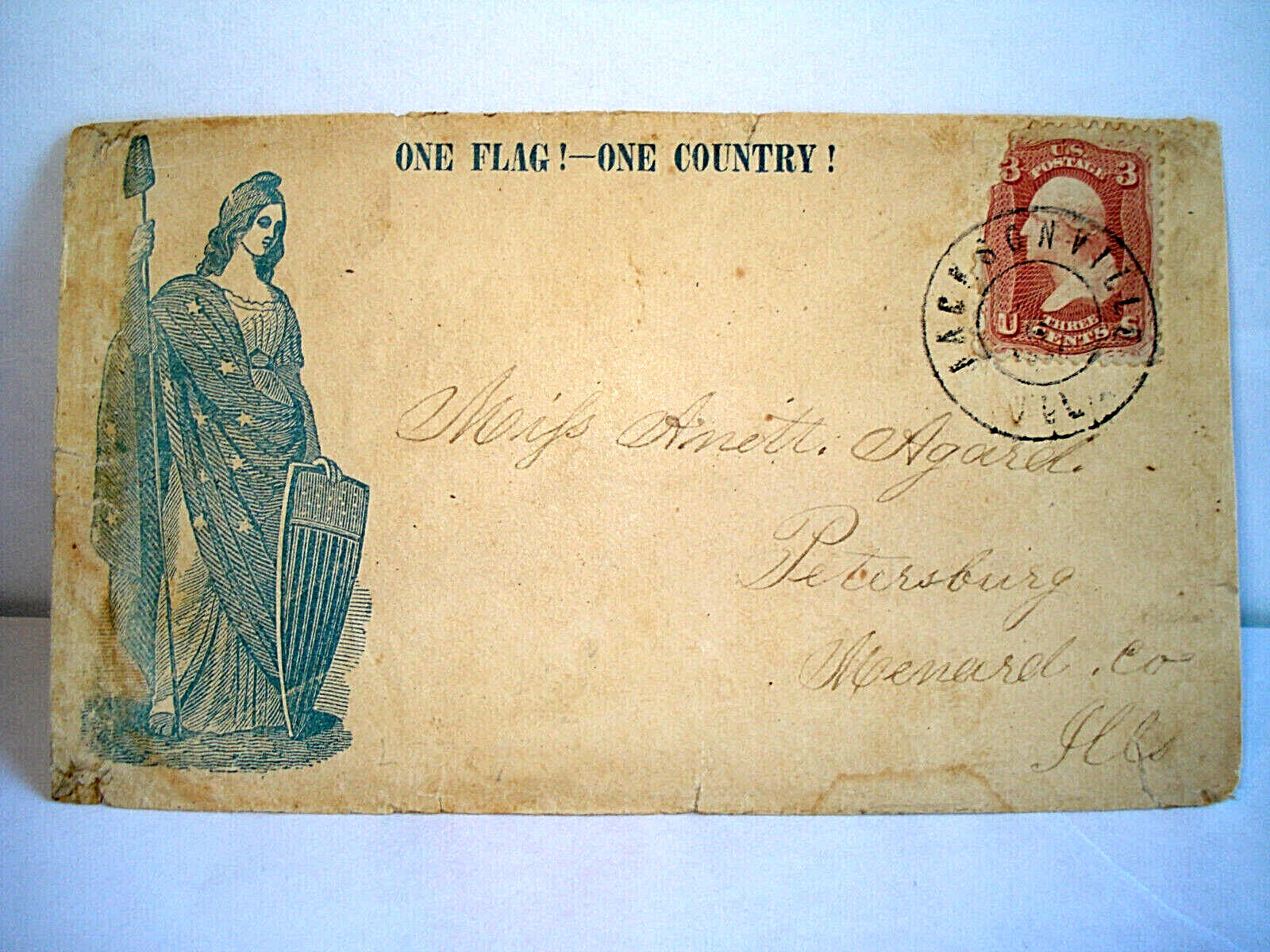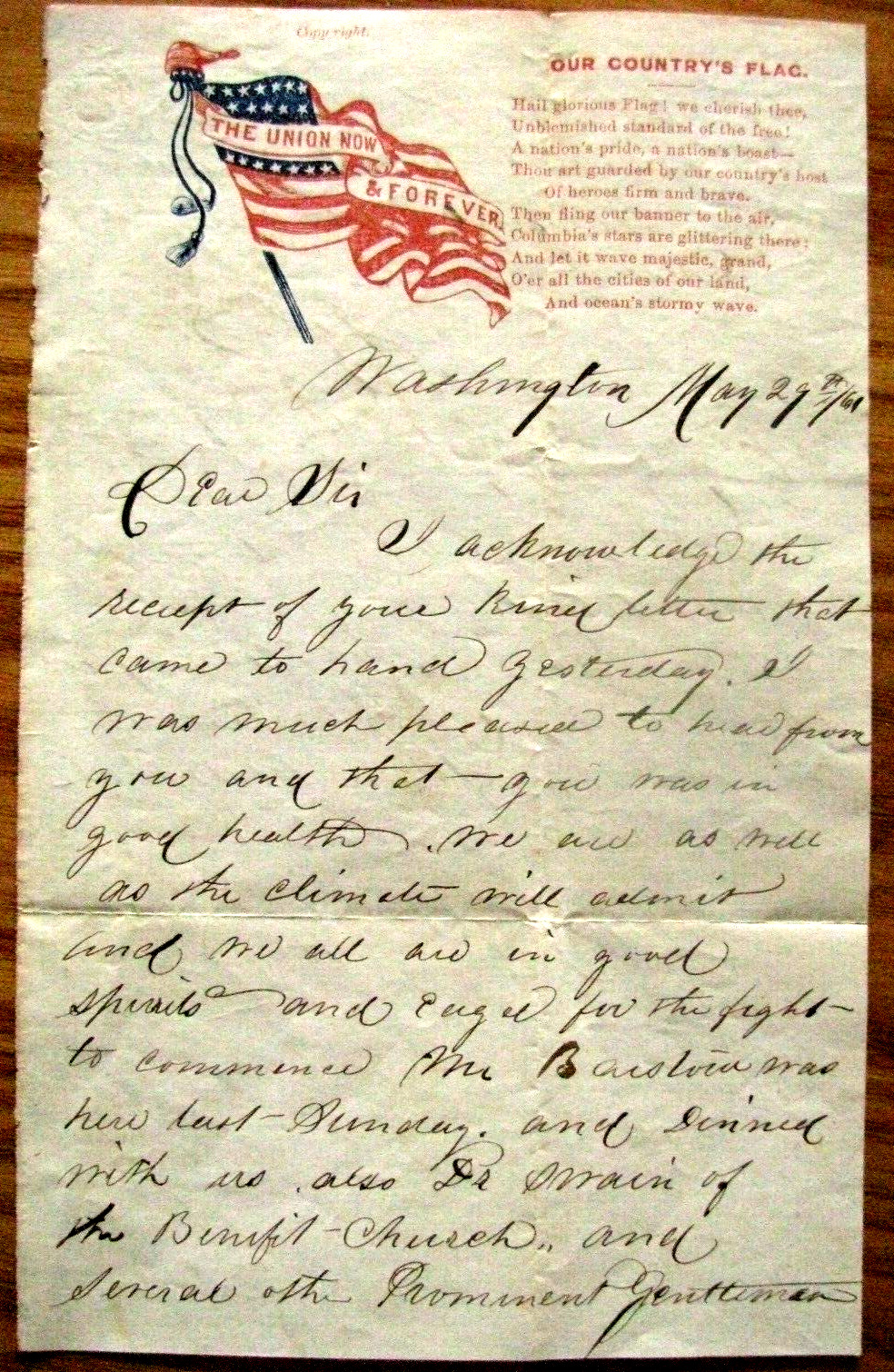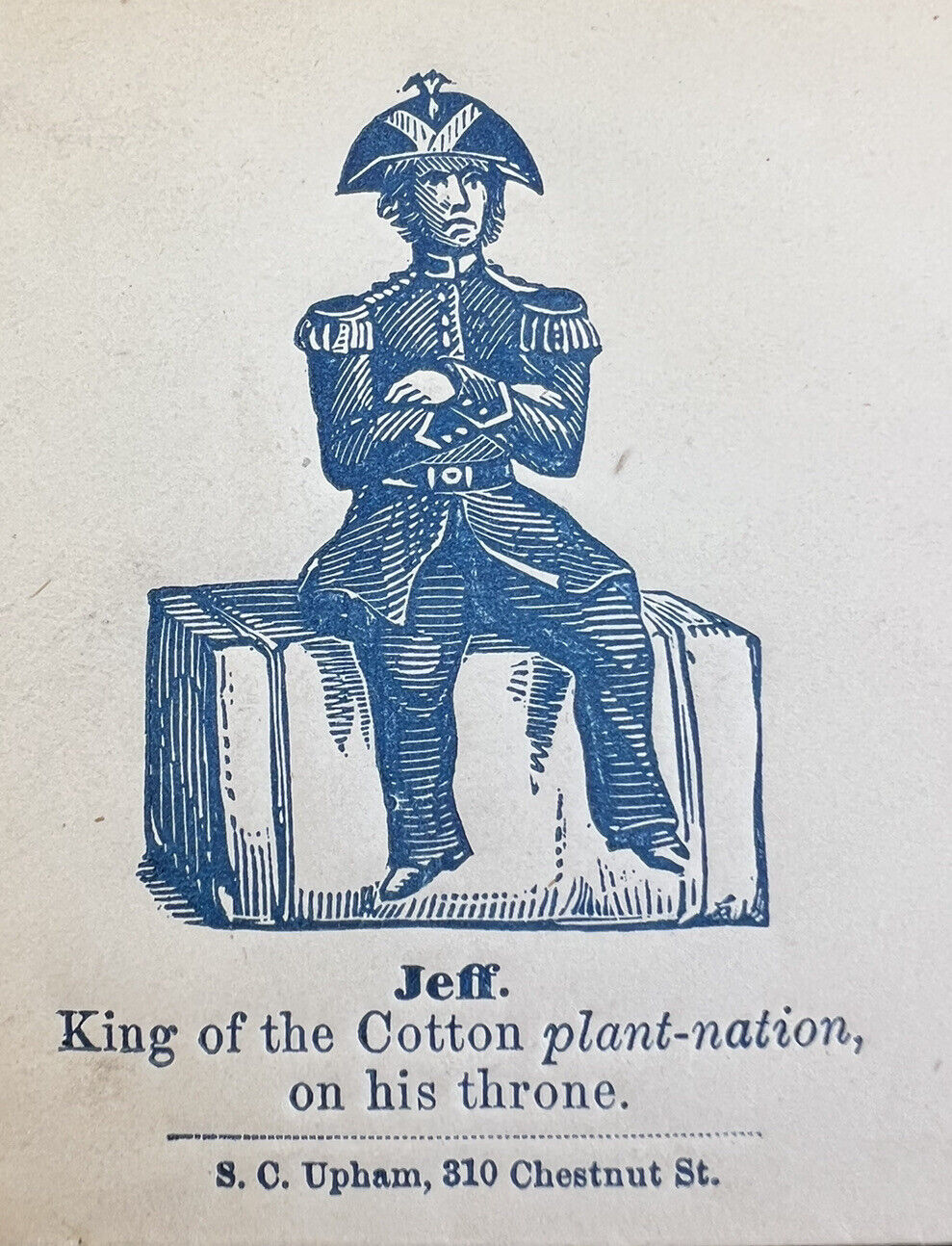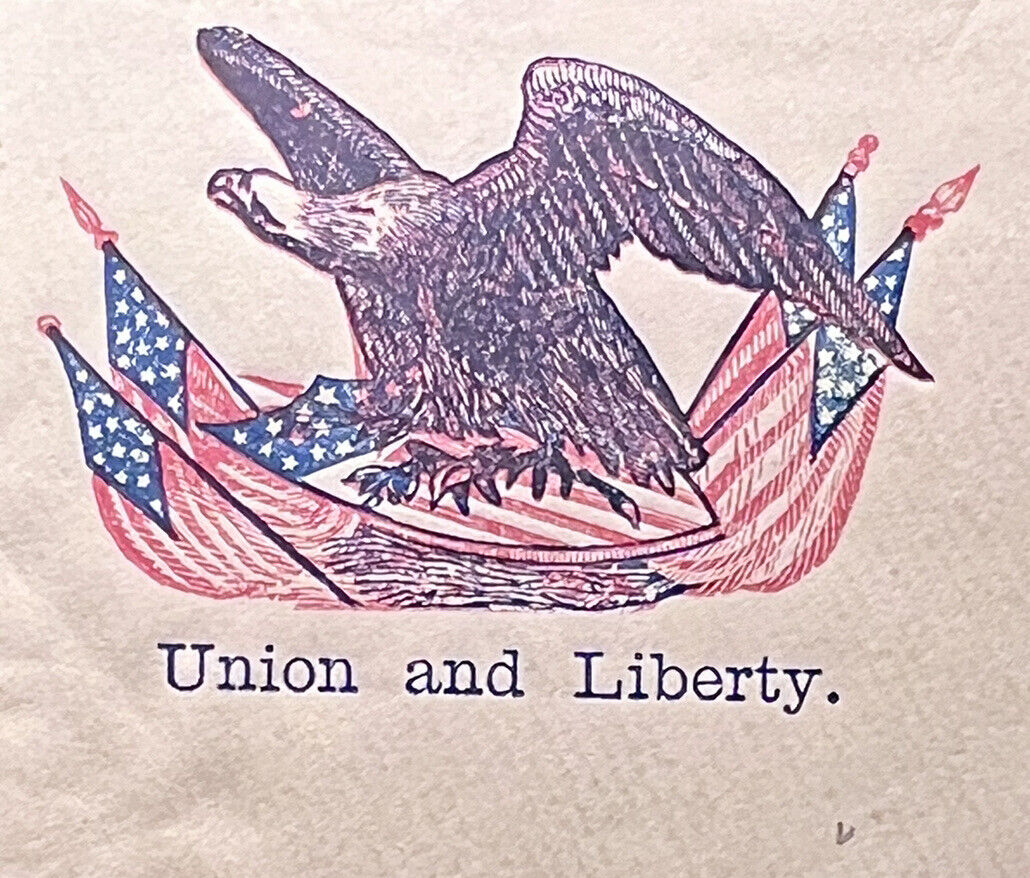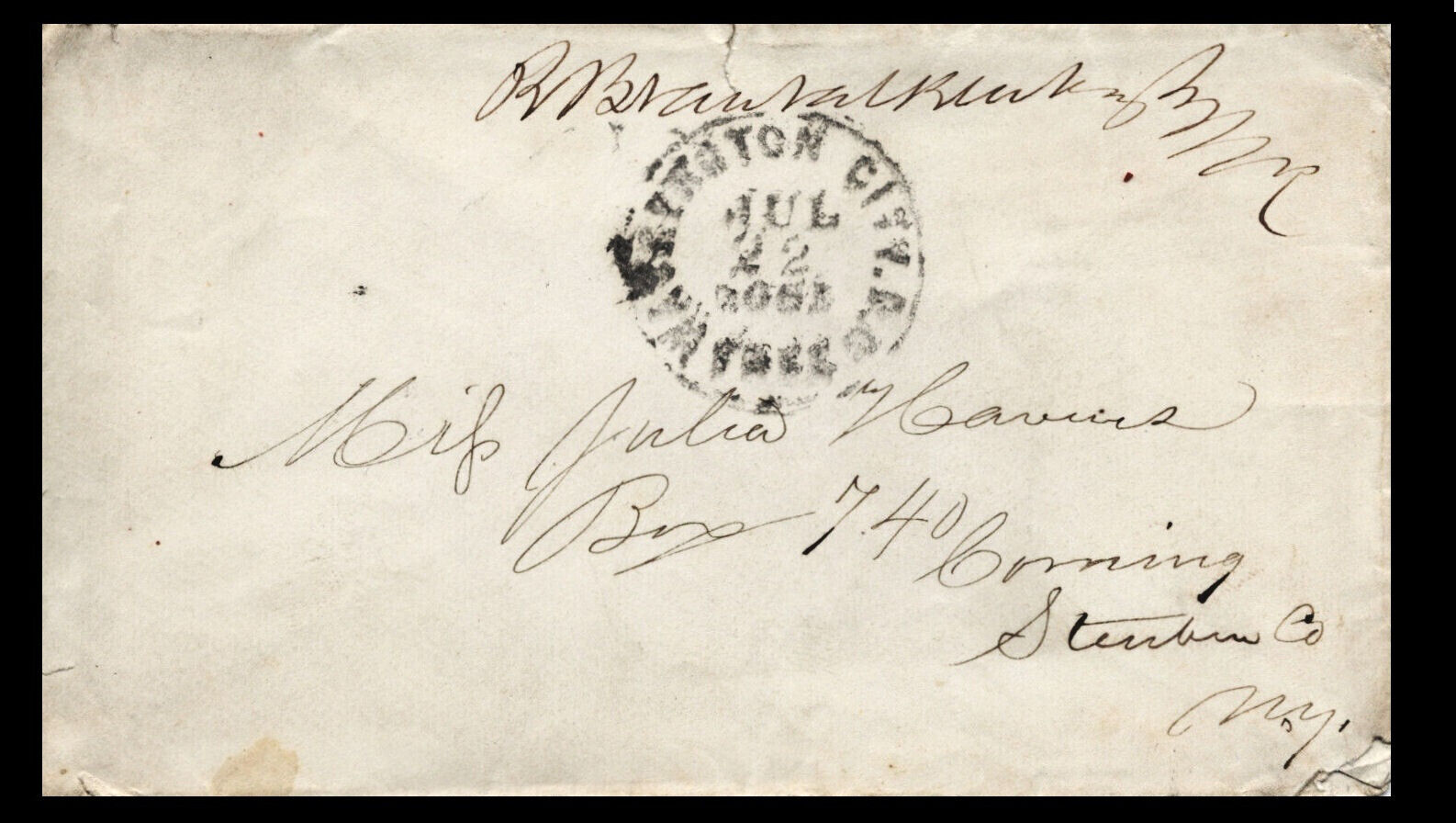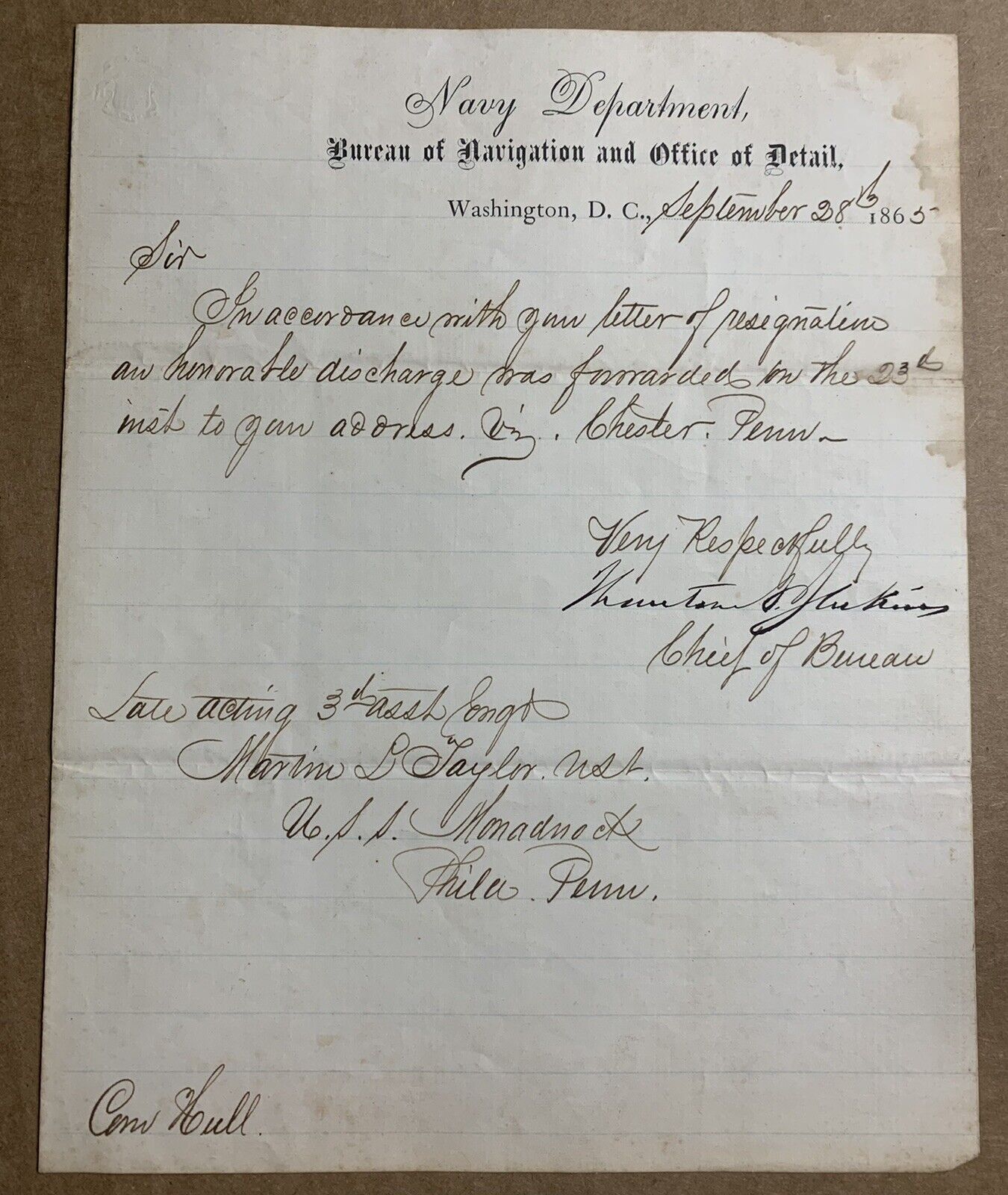-40%
Interesting Post-War Fitz John Porter Letter – Good Political Content
$ 208.56
- Description
- Size Guide
Description
Interesting Post-War Fitz John Porter Letter – Good Political ContentOffered for your consideration is an interesting, politically related letter, penned following the close of the Civil War by a disgraced Union general, finally vindicated after almost twenty years of trying to clear his name. Written from “
New York
” on “
Jany 30th
” (no year stated), this letter was sent to Gilman Marston, another general turned politician after the Civil War. Porter states (in part) that “
I am glad to read the “Times” Editorial and to see that it speaks of you as every one does who knows you that I ever saw - & it was for that reason I would have been glad to see you Rollins successor
…
It is time New Hampshire had a decent representative (.) A friend in N. H. speaks of Rollins as he deserves, “God tricky, deceitful cowardly & treacherous”
…”. He further states that “…
I don’t wonder you abhor Senatorial life – or political life – or Governmental Employment – under the present administration
…
One marked characteristic you will see
…
that every Republican candidate for the Presidency – or prominently spoken of – will be stabbed so badly that you will think the whole set had been living on crime.
”. Porter had experienced difficulties while serving in the Union Army and he spent most of the remainder of his life trying to clear his name. The final paragraph of this missive presumably refers to these efforts, as it states that “
The combination is firm against me I the House – as you will see by the enclosed – which is true. If the bill gets up it will pass – their dependence is that it wont get up in regular order. No one can do any good in Washington, only three members from New England can I rely on. Fear of party cows the conscience of the others.
”. He closes “
Ever Yours Sincerely
/
F.
J. Porter
”. An interesting letter dealing with politics and Porter’s personal issues, written from one New Hampshire Civil War general to another.
Fitz John Porter
was born into a prominent military family on August 31, 1822 in Portsmouth, New Hampshire. He graduated from Phillips Exeter Academy, after which was appointed to the United States Military Academy at West Point, New York. He graduated from the latter in 1845, ranking 8
th
in a class of 41 cadets, and was brevetted a second lieutenant in the 4
th
United States Artillery (he was advanced to that full rank on June 18, 1846. He was promoted to first lieutenant on May 29, 1847, and was brevetted captain on September 8, 1847 for bravery at the battle of Molino del Rey during the Mexican-American War. He was wounded on September 13, 1847, during the battle of Chapultepec, for which he was brevetted major. Following the conclusion of the war with Mexico, Porter served as a cavalry and artillery instructor at West Point from 1849 through 1853, and as adjutant to the academy’s superintendent until 1855. He participated in the expedition against the Mormons in 1857 and 1858, after which he inspected and reorganized the defenses of Charleston Harbor, South Carolina. Soon after the outbreak of the Civil War, while colonel of the 15
th
Pennsylvania Volunteer Infantry, Porter was accused by a rival of helping to persuade his commander, Robert Patterson, to allow Confederate General Joseph E. Johnston’s forces to escape the Shenandoah Valley and re-inforce General P. G. T. Beauregard’s troops during the First Battle of Bull Run (this turned the tide of the battle). Porter was promoted to brigadier general of volunteers in August, to rank from May 17 so that he would be senior enough to receive divisional command. He led his division at the siege of Yorktown, though when General McClellan created two provisional corps, Porter was assigned to command the V Corps. He led his men bravely during the Seven Days Campaign, particularly at the battles of Gaines’ Mill and Malvern Hill. For his performance during these actions, Porter was promoted to major general of volunteers on July 4, 1862. His corps was subsequently detailed to re-inforce Major General John Pope in northern Virginia, though Porter openly criticized his fellow general and challenged the re-assignment. During the Second Battle of Bull Run, Porter was ordered to attack the flank and rear of the Confederate force, an order that as given could not be properly obeyed (Porter knew of the arrival of James Longstreet’s wing, Pope apparently did not). Porter chose not to make the assault. The following day, Pope again ordered the flank attack, and Porter reluctantly complied, though in the process of preparing for the assault, his troops were struck in the flank by approximately 30,000 men (Porter’s men numbered approximately 5,000 or so). Pope was devastated by the defeat and accused Porter of insubordination (he was relieved of command on September 5, 1862). He was restored to command by General McClellan and held in reserve during the battle of Antietam. On November 25, 1862, Porter was arrested and court-martialed for his actions at Second Bull Run. Without the protection of his friend, McClellan, who had himself been relieved, Porter was found guilty of disobedience and misconduct on January 10, 1863, and dismissed from the army eleven days later (he spent most of the remainder of his life trying to clear his name). In 1878, a special commission exonerated him, indicating that his reluctance to attack probably saved the army from a greater disaster. In 1886, President Grover Cleveland commuted Porter’s sentence and a special act of Congress restored his commission as an infantry colonel, backdated to May 14, 1861, but without back pay due. On August 7, 1886, two days after being vindicated, Porter retired from the United States Army. During his post-war years, Porter was involved in mining, construction, and commerce, and served as the New York City Commissioner of Public Works, the New York City Police Commissioner, as well as the New York City Fire Commissioner. Fitz John Porter died on May 21, 1901 in Morristown, New Jersey, and was subsequently buried in Green-Wood Cemetery in Brooklyn, New York.
The currently offered letter exhibits signs of expected period use, followed by years of reasonably good long-term storage. Toning is present across the entire surface, imparting to the paper a beige to light tan hue. This toning is slightly darker at the edges and along the fold lines, though none of the text has been significantly affected. Two horizontal folds are noted, both affecting the integrity of the paper, with the lower one causing a separation of the paper at the right edge (these issues could be addressed with archival tape, though some of the text would be affected). The contrast is sharp and bold, though some of the text is difficult to read due to Porter’s penmanship. Due to the acidity of the ink used, minor corrosion is noted on both sides, though no paper appears to have been lost at this time. Measuring approximately 5 x 7⅞ inches, this piece would make a great addition to any Civil War autograph collection, especially given the political content and the lengthy battle of the author for military vindication.
If you have any additional questions regarding the condition of this item, please ask before purchasing.
A .95 charge will be added to the winning bid for postage and insurance.
A .00 charge will be added to any item picked up in person at our physical location.
If you have any questions regarding this item, please ask before purchasing.
Buy or Bid with Confidence – American Coins & Collectibles President Richie Self has worked 6 years as a paper money grader/authenticator. He has contributed to numerous reference books within the industry, as well as being a co-author of “The Comprehensive Catalog and History of Confederate Bonds, 2
nd
Edition” with Douglas B. Ball, Ph.D., Henry F. Simmons, M.D., Ph.D. and James R. Desabaye. Mr. Self is a life member of the American Numismatic Association, the Society of Paper Money Collectors, as well as numerous regional numismatic associations. He is an authorized submitter to NGC, PCGS, and PMG, a diamond founding member of Coin Dealers Helping Coin Dealers and a supporter of the Industry Council for Tangible Assets. American Coins and Collectibles can be found at many of the state and local coin shows.
American Coins and Collectibles
Shreveport, LA


